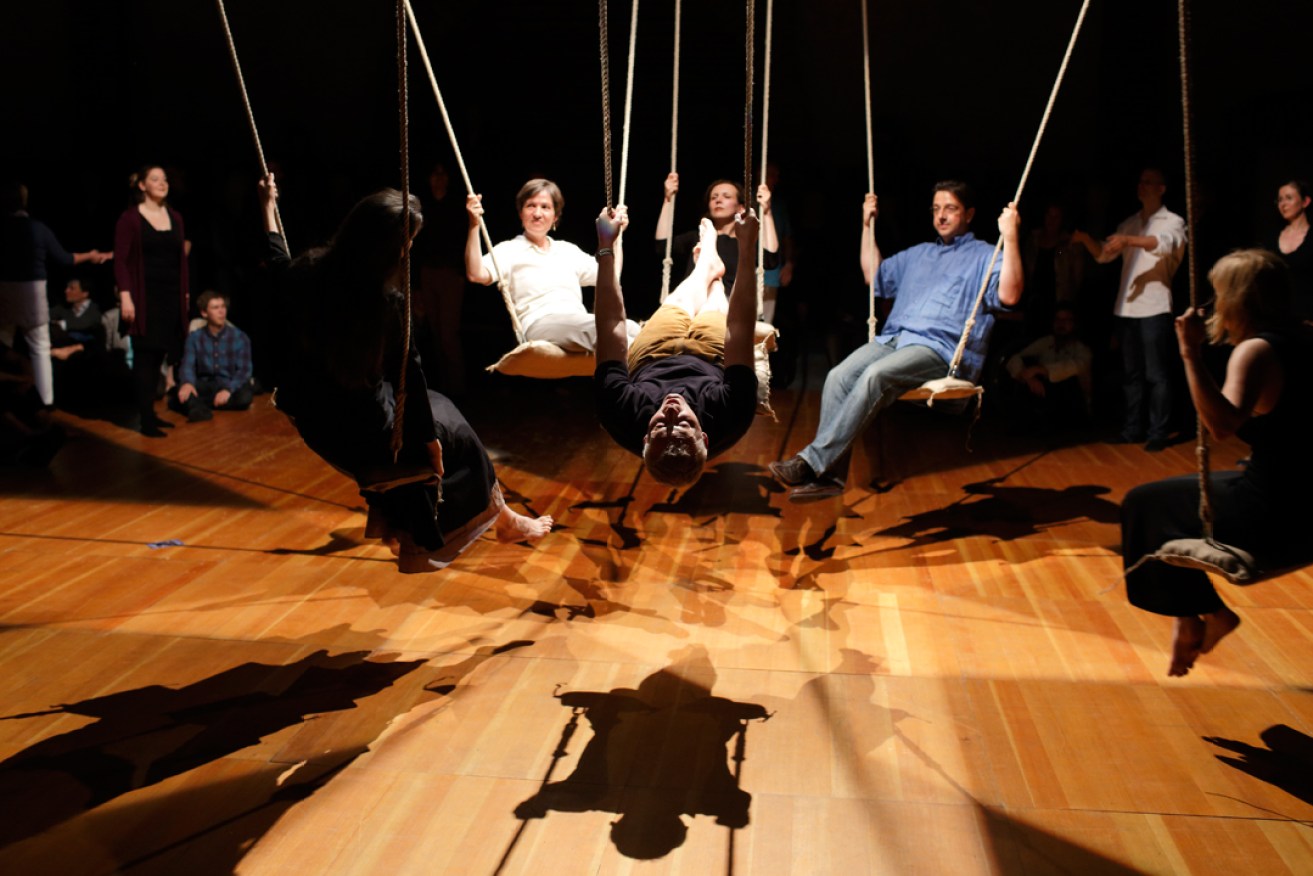Festival review: Human Requiem
This staging of Brahms’ German Requiem subverts some of the formal traditions of choral singing, breaking down the barrier between performer and audience, to powerful effect.


Rundfunkchor Berlin's Human Requiem. Photo: Matthias Heyde
Yet another highlight in this year’s Adelaide Festival music program, the singers of Berlin’s acclaimed Rundfunkchor are – at first – indistinguishable from audience members, who have been instructed to remove their shoes before entering a large, wood-floored section of the cavernous Ridley Centre at the Adelaide Showground.
There are no seats: we are standing, all of us together, in a curious crowd. Then, when the four-handed piano accompaniment begins, voices unexpectedly ring out from around us – a 360-degree pleasure.
Brahms’ work, celebrating its 150th anniversary this year, is sung in German, so it might be useful for those who aren’t familiar with the piece to look through the English translation. As director Jochen Sandig points out, the work equally reflects the pain and tragedy of mortality and the beauty of life and love.
The first movement begins with the singers moving gently among the crowd: they are like us, dressed in a variety of fashions from formal dresses to jeans. It is immediately quite moving: the form matching the message quite clearly.
It’s an exposing way for choir members to perform: the individual voices or brackets or two or three singers come to prominence as they pass but, cleverly, the singers are grouped together at critical moments in the score, where the power of the group is required.
The audience is free to move around, occasionally gently directed to sit or move aside.
Before the beautiful fourth movement – Wie lieblich sind deine Wohnungen (How lovely are thy dwellings) – wooden swings descend from the rafters, with singers swinging back and forth with apparent little regard for collision. With Brahms’ glorious music, it’s a transcendent moment.
Pianists Philip Mayers and Angela Gassenhuber carry their load with skill but, for me, four hands on the piano – at any time – can be a little muddy.
The choral ensemble is spectacular: rich, resonant and remarkably precise given the constraints (at times, conductor Gijs Leenaars has a second conductor shadowing him, in order to keep in eyeline of the disparate performers).
At various times, choral members’ bodies are carried through the crowd, the singers crowd around the piano, embracing and sinking into each other, and, finally, the audience is seated in darkness in the middle of the room while the ensemble rings us with sound and warmth.
The finale, as with the opening, fully reveals the genius of the idea – to make a sweeping traditional work intimate and highly personal.
Human Requiem is playing at the Ridley Centre until March 18. Read more InDaily Adelaide Festival stories and reviews here.




